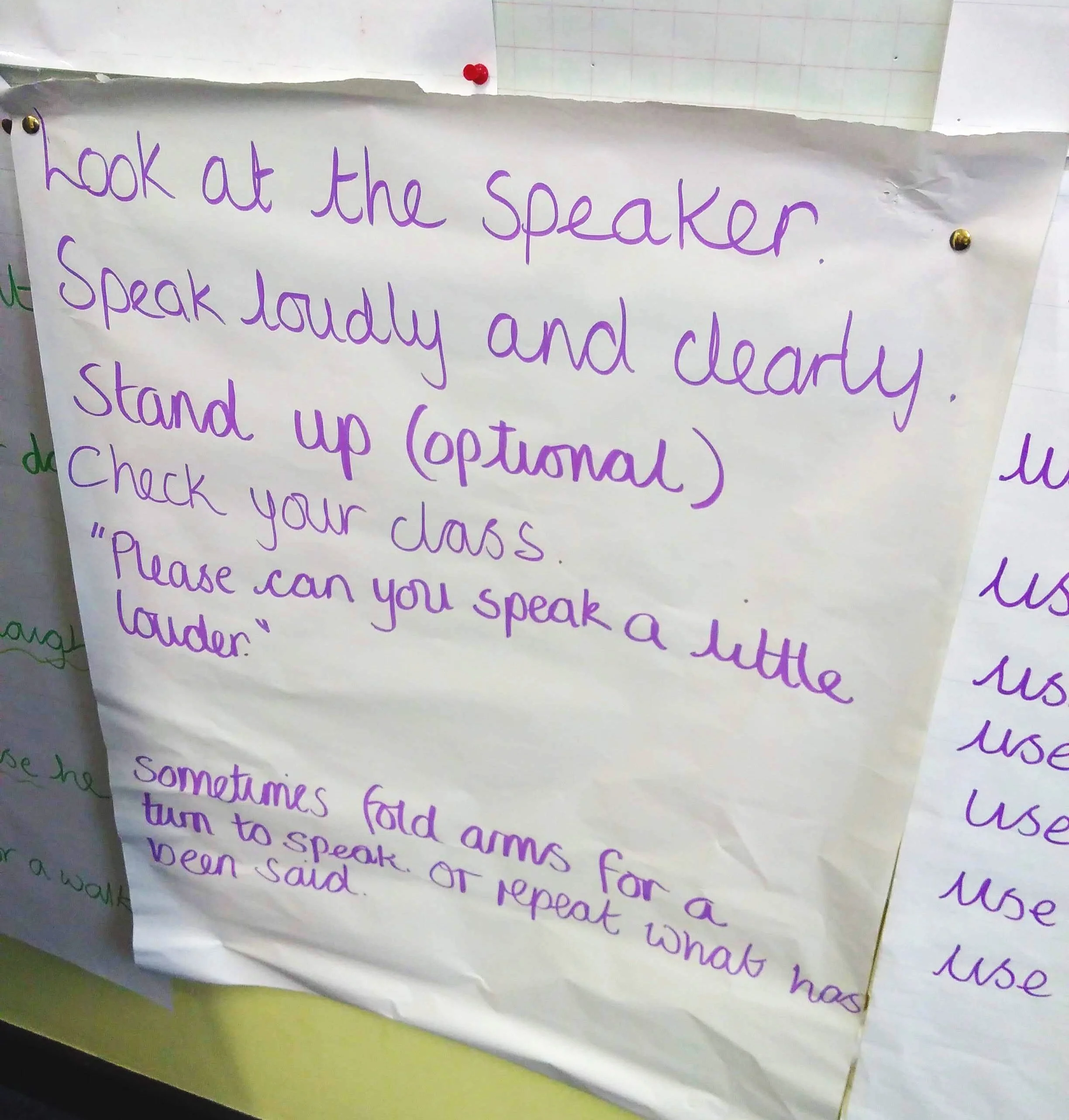Ground rules are one of the essential foundations for effective learning talk. So, if you’re only going to do one thing to improve your pupils’ oracy skills, do this.
Consider co-creating the rules with students, rather than imposing them. Ask your students to discuss possible ground rules and work towards a list that can be displayed whenever they are doing talk tasks.
The ground rules can be whole-school or class-by-class – both options have advantages and disadvantages.
Decide what to call them – different schools use names like Talk Agreement, Talk Protocols, Talk Promise or Speaking and Listening Guidelines. The name isn’t so important – what matters is that they are used!
Dive deeper into ground rules in James Mannion’s 2020 post for Oracy Cambridge. Pete Dudley has also talked recently about ground rules in his post about anticipating the language demands of your lessons.
“[Ground rules] prevent pupils from getting stuck in disputational or cumulative talk cycles and help them move swiftly into exploratory talk...”

An agreement signed by the students

Guidelines for whole-class discussions
An activity to get your class talking to each other after the holidays
Seasonal versions of some well-known oracy games
A great way to get students used to talking to different people
A structure which develops speaking and listening, and can be used across the curriculum
How one teacher raises accountability using a quick and simple technique
Collaboration is much more likely when pupils have to do a shared piece of work
Give students opportunities to say and apply new vocabulary
Learners recall fiction, processes, explanations and more by listening and building on what others have said
Give pupils the skills and resilience to work with a diverse range of people
Help students to use the language of Maths
My top three strategies to make sure every pupil speaks during whole-class learning





























Can they remember what everyone else said?